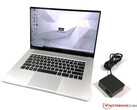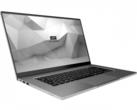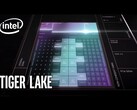Interview | "Our imitators are chasing specs": Intel's Chris Walker talks to us exclusively about Intel Evo and what it means for mobile computing now and in the future
Intel has launched the new 11th generation Tiger Lake CPUs with Xe LP graphics today and one of the highlights of the launch is Intel Evo. Intel Evo is basically an evolution of Project Athena that first made its debut at CES 2019. For those not in the know, Project Athena introduced a set of Key Experience Indicators (KEIs) representing real-world scenarios that OEMs will have to meet to get the elusive "Athena-certified" tag for their laptops.
While Project Athena was, in many ways, a step in the right direction and encouraged standardization of laptop hardware while emphasizing real-world performance consistency, it didn't really take off as expected. There were no obvious signs that a laptop was Athena-certified and users weren't really educated about its benefits. So far, we have seen only about 30-odd models that can claim to have passed through the Athena certification process.
However, Intel hopes to change all that with Evo. Evo will be a work-in-progress collaboration between Intel and its OEM partners and builds upon Athena's KEIs to now include workloads that include web cloud connectivity, concurrent multitasking, performance while on battery along with audio and microphone performance.
We had a chat with Christopher (Chris) M. Walker, Intel's Vice President of the Client Computing Group and General manager, Mobility Client Platform to know more about Intel Evo and how having such testing and standardization with full OEM participation can help advance mobile computing for both the industry and the consumer alike.
Vaidyanathan (VS): Intel basically invented the Ultrabook as we know it back in 2011. What do you think has changed with respect to laptop use cases or usage patterns over the past nine years or so?
Chris Walker (CW): Yeah, I think the great thing about Ultrabook was that it was able to pull mobile computing to truly make it mobile with thinner and lighter designs. Then, two or three years later, we enabled the 2-in-1 form factor for people who wanted the performance they wanted in a fan or fanless machine in a clamshell with a tablet flexibility. We focused on touchscreens, pen input, and the utility of it.
What's been really different in the things we've focused on the Evo platform now is looking at people how they use the computer, what they need in terms of performance, beyond the set of technology and form factor breakthroughs. We really went through what people love about their PCs and how they are using it, and we wanted to make that just fantastic, outstanding, and a brand-new experience. Make it something where you are really getting it all.
What you sometimes see in the industry is people want to go super thin, ultrabooks go thin, thin, thin, right, but they make trade-offs in performance or battery life. When people go for certain external specs on battery life but leave the performance behind or look at some of the industry ways of measuring battery life, it didn't really reflect how people use their systems. What we are doing with Evo is bringing it all together, and achieving that balance, achieving that no compromise and, and, and...is the really hard part.
The big thing that we did, and I remember going through this with my team over the last few years, is that there's a lot of technologies that we could do and that might be appropriate for certain users, but it always had to come back to the theme of is it helping you focus, is it adapting to you, and is it ready in an instant and ready for you.
So, that was consistent and it always came to helping us on those three pillars and that's how we formed the technology decisions and how we got here. That may be a little different in the past where we tried to focus on form factor and show what a mobile system could do. Now, we are able to take that plus add how it's going to feel to you, how it's going to help you, and that's really the big change over the last couple of years.
VS: So, can we consider Athena and Evo as sort of an extension of Intel's vision of what an Ultrabook ought to be because you know that the term Ultrabook is not just limited to Intel laptops now. Will Athena and Evo cement how Intel envisions how a thin and light laptop should perform?
CW: Yeah. It's actually our vision of what the best laptop can do for the "go-getters", whether you are highly mobile traveling or at home, we really focused it on these real-use experiences and what we think and what you all told us what you want on a laptop. It's not only how we deliver that through our partners but we said we wanted to verify that. We wanted to say it's our promise that this system enables you to do these things and have these kinds of experiences.
Some things we've learnt from Ultrabook in terms of how you verify on the hardware side, but it's so much more because of all the experience, battery life, performance testing that we are doing together with our partners. So, for us to now put an Evo platform brand on it, it's a very big statement to say listening to the market this is what we believed, this is what people told us they want on their laptops, and we've gone out and made it happen with our partners.
VS: When you started off with Project Athena at CES 2019, what were you targeting from a business perspective? Was it demographics, price points, use cases, or was it something like a proof of concept similar to how Microsoft, with its Surface lineup, heralded the era of touchscreens and convertibles?
CW: What we are targeting and what we do target is based on everything from our work with partners on use cases, social scientists and ethnographers. There is a use case and a user, we call go-getters. Look, I go to my laptop to get my most important things done because it allows me to focus and there's a level of performance I need. Workers whether they are in shared spaces or now in homes say, this is what I need on my laptop and I need this performance to be with me while I am on battery or plugged-in — these are my pain points I am trying to solve for. So, that was kind of the demographic or use case where people depended on and used their laptops for entertainment in their daily lives. That's when we said, you know, 12 to 15.6-inches is where the focus and innovation needed to be.
To date, we've seen 50 systems come to market ever since we launched at CES last year and this includes consumer and commercial. For us, within that, there are a bunch of different variations from each OEM's ideas that we work on together. Project Athena will be an annual, multi-year effort as we continue to drive this innovation forward. We had the deepest research addressing what are the pain points, what are people trying to solve, what are the next and next things that people do.
We work with our partners not just on next year's edition of the Project Athena specification but two or three years out. We are a few years ahead right now thinking about what are the next few things we need to do and then we work back with our partners to make it happen. This isn't just about OEM design. With about 150 partners, this is OS vendors, ISVs, and component makers. We all work to identify what are the next big breakthroughs we need to do. We got these Open Labs in the US, China, and Taiwan to help people who are doing their own development to come in to share the vision and work on it together.
So, from that standpoint, this is not a proof of concept. These are systems that have been co-engineered, co-optimized, coming live in the market, and then the annual process of making it happen, keep it standing, making it harder continues.
VS: How has the response been since you've started off with Project Athena? Were your partners enthused by it or was there any reluctance since you're setting the standards? Also, how was the consumer response?
CW: I think the response has been great. We don't just drop a specification on someone and say that's it. We've been going at it for a few years in a collaborative way. The indication of the response is the 150 companies that are collaborating with us for thousands of hours that have gone in tuning our systems. I don't think our partners would invest their engineering time with us if they didn't believe in where we are going and pushing forward.
I think the important thing is there is definitely room for innovation in the Project Athena docs and specification. It's not a one-size-fits-all. You see different OEMs doing things that match best to their vision too. So, it's a combined work and I think the reception has been great in terms of systems coming to market in both consumer and commercial.
We've been encouraged by the industry response and we are super excited about the retailer and partner response for this Holiday to the new Evo systems coming in. People have been really excited and said the industry needs this and this is solving real problems.
VS: When Project Athena initially launched, not many were seeking for it actively among the sea of other laptops on the market. Have you taken any steps to educate the customer better this time around?
CW: When we did the first edition spec (Project Athena), we used an identifier to say that this laptop has been verified. Now, we are doing a very visible platform brand. This will be the badging on the system, it will be all over our merchandising, advertisement like how we did with Centrino. From our standpoint, it will be the center point of our consumer and commercial marketing campaigns including much bigger implication, lot of point-of-sale help with online and physical retailers, partner activation, and more.
We started small on the first edition spec because we were getting the systems activated, doing the testing, and getting people to identify it. Now, with the great basis of Tiger Lake and its boundary-breaking capability, we went all-in and did a full platform branding.
VS: Do you think, from your perspective, that we could have had even more number of Athena-certified laptops given that the proportion of such laptops compared to the market as a whole has been very low?
CV: As a percentage of the thousands of platforms we touch and work on, it is a relatively lower number. These are for mainstream, premium type systems that are US$800 and above, which is a growing part of the market. We've been kind of careful or purposeful because this is really hands-on tuning, crafting, and verification. There's a lot that goes into calling something an Evo-based laptop. We want to ensure that the capability is there and that we'll be able to continue to scale. But we are not going to scale where we water down with our promises. That's the way we approached it and it's pretty intensive engineering work.
VS: It is possible that a certain spec might meet the criteria for Athena while a different spec in the same chassis might not do so, which makes matching the battery life and power targets difficult. How does Evo plan to address such disparities?
CW: Evo is more than just a spec list and checkboxes. It is also a verification program. We test specific configurations and only those tested configurations will carry the Evo badging. There's going to be a lot of great systems with 11th gen Core processors, but then systems with the battery, the panel, the microphones, and everything else that meet verification and testing for multiple rounds against all these criteria use the Evo badge. We specify and work with OEMs that only the systems that have gone through the verification and testing process and pass get to use the Evo brand. That should be very clear.
VS: On that note, how stringent are you when it comes to enforcing these KEIs? Say you have a set number of criteria that you have to check off, but then if one or two parameters such as the battery and display, for example, do not meet the targets, would the laptop still pass verification or will it be put on the backburner?
CW: We are also encouraging innovation with our OEMs, so there are some allowances. For example, a system with a 4K or UHD screen will have a lower battery life than one with an FHD screen and many buyers understand that there is a trade-off. But we've also set a battery life bar for UHD screens. We do set minimum levels for screen-to-body ratio, thickness, and minimum bars on passing the responsiveness test. There are 25 different tests over 200 different interactions and you have to pass them in multiple, multiple rounds.
VS: So, is there really an absolute cut-off? Say, if the laptop passes about 85 to 90% of all those tests, is it deemed to be Evo-certified?
CW: There are some innovation pluses and minuses. For instance, if you are passing 24 or 25 tests and you've done something extraordinary on the battery that might be it. There's always a minimum for battery life, performance, and responsiveness that has to be met. There's consistency across systems but we allow variance across them. But it has to meet some minimum bars, right. You have to wake within a second, have Wi-Fi 6 Gig+ speeds, Thunderbolt 4...that's all consistent.
If someone wants to also add an HDMI port, that's fine. You know, things like that we allow for. Or if someone did something very unique on a configuration or design that may have limited the number of ports you can do, like not being able to accommodate Thunderbolt 4 ports on either side for convenience. But here there's an obvious design or innovation advantage for it.
VS: How do you expect Evo to build upon or be distinct from Athena apart from just the specifications aspect?
CW: Evo is built upon the 11th generation Core Tiger Lake processors. So there's this really massive step in productivity, creation, and gaming from what you expect in very thin and light laptops. I can tell you that you can play PUBG on these laptops because of Tiger Lake. Then, we intensified the Project Athena KEI testing on top of this fantastic base.
VS: Speaking of KEIs, will we be seeing new add-ons to that?
CW: What we did is, we added and intensified web-based tasks, concurrent connectivity, multi-tabbing, and multitasking work cases while increasing battery life at the same time in the specification. Basically, we made it harder and said we're going to be harder in responsive tasks and together increase the battery life expectation.
VS: The KEIs that were originally part of Project Athena still carry forward, right?
CW: Yes. We just made it more expansive and harder and didn't deprecate or lose anything from the first edition spec.
VS: Are there plans of any stratification for Evo-branded laptops either at launch or some time down the line like an Evo for high-end laptops, for example?
CW: Because Evo is based on our go-getter audiences and use cases, it is going to stay true to that. You will see Evo i5 and Evo i7 models based on Tiger Lake and they all have the same Xe level of graphics. Beginning next year, we will add vPro capabilities for commercial markets where governments and enterprises will want the next level of security, manageability, and capability. We will extend this to vPro, but that's the limit of how we are taking this platform.
VS: But "go-getter" means different things to different people. Someone who is a creative professional will have a different expectation from what they expect from the laptop and may opt for an H-series compared to say, a college student who may opt for a U-series.
CW: Yeah but there are some common elements across both use cases. What's impressive about this is that we can do 12-inch to 15.6-inch systems including 2-in-1s and traditional clamshells. So there's going to be a range of form factors and devices that people want. Keep in mind that because it is based on the 11th gen Core, you are going to see some impressive content creation workflows.
Yes, if somebody is doing, you know, professional CAD or Maya, we want them in an H-class processor with higher-end discrete graphics. That typically has a trade-off in battery life and things it could do. We've got great Core-based products and increasingly with discrete graphics that address that. Sometimes, you have to make trade-offs with battery life, so we wouldn't extend Evo to those and that's where we draw the line.
You are going to have great gaming experiences on Evo if you are competitive in eSports. Yes, we want you to buy the best Intel H-series processors that give the highest frame rates with high-end discrete graphics. If you are buying for gaming, we got a great solution for that. But there are trade-offs versus with what we think Evo promises.
Our product line covers a gamut, but Evo wants to be pretty true to what the user base is.
VS: Since you said Evo is an iterative process, somewhere down the line, do you envision setting standards for H-series and above as well?
CW: We do a lot with our partners today on H-series in terms of co-development on platform work. Some of that goes into how we do...you know, we've got thousands of client PC-centric engineers at Intel, have thousands of designs with our partners for every release. When I talk about the platform having hundreds of designs, remember that count is platforms and not configurations under the platforms. The expanse and reach of what we do is quite large.
So, a lot of what we do in our H-series and even in our entry platforms, Windows and Chrome, is all very high touching. There are some common themes and goals about making sure you are getting the most of our platforms. We went that very extra mile on the Evo platform because there are some unique problems and unique advancements we wanted to solve for.
VS: With Xe LP, it looks like you are trying to make the entry-level discrete GPUs such as the NVIDIA MX350 redundant. With such targets, can you ensure under the Evo spec that the laptop will not throttle and guarantee better sustained performance for long periods?
CW: One of the requirements for the configuration of Evo is that you are using an 11th gen Core with an Iris Xe Graphics. With that as the baseline, we do everything else. During the launch, we will give you a blueprint briefing where you will see a chart of top titles, frame rates, and cool things such as Variable Rate Shading all of which are based on Tiger Lake. Because we are saying it has to have the higher graphics configuration of Tiger Lake SKUs and systems with the right memory configuration that should carry forward.
VS: So, an Evo laptop with 11th gen Tiger Lake offers guaranteed gaming performance, is that right?
CW: Gaming isn't necessarily part of the testing, but it is already part of the 11th gen platform capabilities.
VS: Under a broader 11th gen umbrella, you are saying an Evo laptop can also game?
CW: Yeah. And again, it is focused on use cases and we understand entertainment is a part. With AVI decode for Netflix and iQiyi in China, all those baseline things that are in Tiger Lake and the 11th gen platform, Evo builds upon that to be the best of the best. It is the performance of Tiger Lake plus the capabilities and the responsiveness, and it is the "and, and, and."
What we see in...you know, you guys do this testing...you will see from our competitors and imitators that people go for benchmark scores but that does not reflect actual creation flows in Adobe. Or you go for the performance level, but then when you un-plug, it is throttling like crazy, right. That's what our imitators in the industry are doing — they are chasing specs.
What we've done is that Tiger Like gives you that full performance capability for productive, creation, and it's going to surprise you on the gaming experience. And Evo says, let's take that, focus on the user case and make sure there isn't a compromise. We even went out with microphones, sound, you know, these are real use cases. I think we are unique in the industry with this and we stand above in how we look and approach this.
It's harder for people...you know, it's not an easy push button benchmark, but we wouldn't like that. We were deliberate and that's where I think I am so excited about why we went that extra step to say, Hey! We put this level of promise, this verification. It's something that says we should do something we haven't done in a decade. It's a new brand, it's a new promise to our users in the industry what we've achieved. So, we are super excited about that with Evo.
VS: You brought up an interesting point — performance on battery vis-à-vis performance when plugged-in. When we take all these criteria for evaluation, obviously performance when plugged-in would be better than on battery. Are you setting a baseline for the kind of performance that can expected on battery while still maintaining the 7 or 9-hour battery life promise?
CW: Correct. That's the hard thing about Project Athena and that's why it is extreme in testing. Your responsiveness test has to pass on wall power and battery power. You have to have that performance on battery and get that battery life.
VS: Does Evo also focus on ease of service and maintenance?
CW: It is not part of the standard so far.
VS: Will Evo be restricted to 11th gen Tiger Lake or are you planning on extending it to other hybrid CPU architectures such as Lakefield or even Alder Lake (if it is coming to laptops)?
CW: Evo that is launching this year is built exclusively on Tiger Lake. Project Athena overall is a multi-year program and commitment. Evo can be expected for many years to come and incorporate new platforms and technologies in the future. We are already working with OEM partners on the third edition and the fourth edition spec of Project Athena and that includes the new platforms we go to.
We would like to thank Intel Germany for giving us this opportunity to talk to Chris Walker and look forward to even more such insights in the future.
Source(s)
Own























